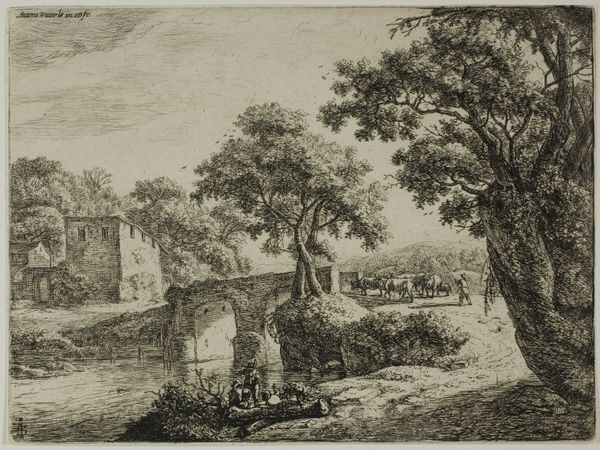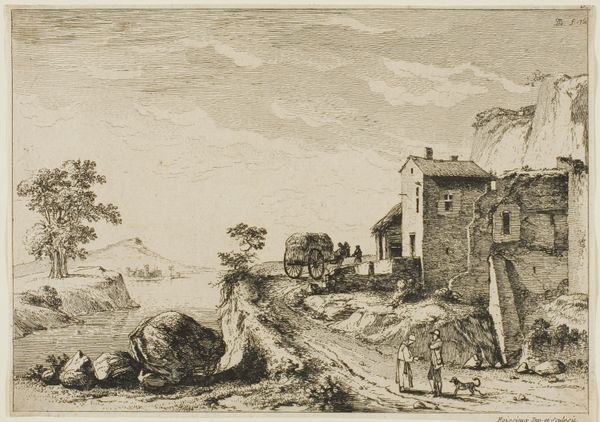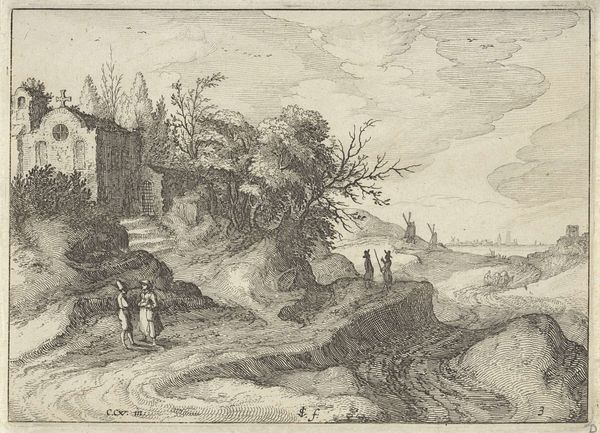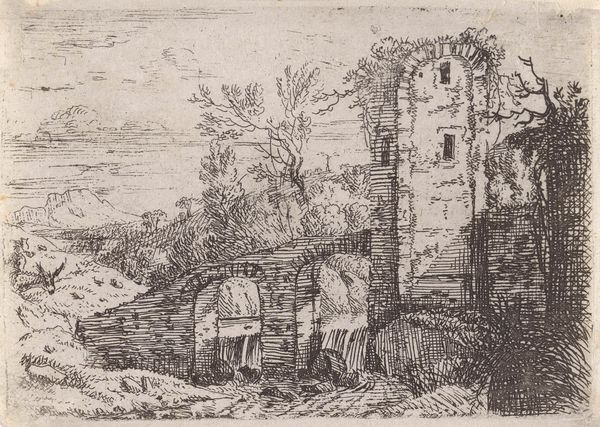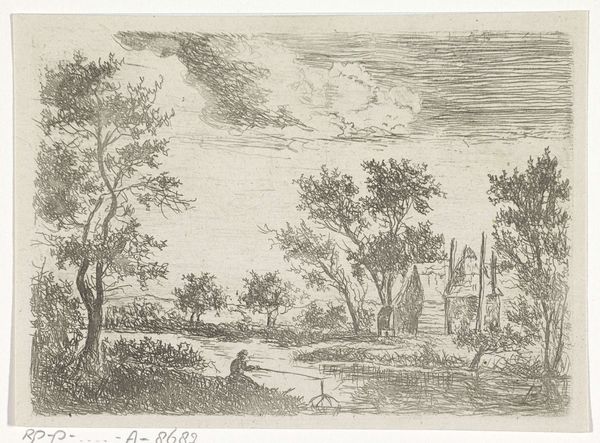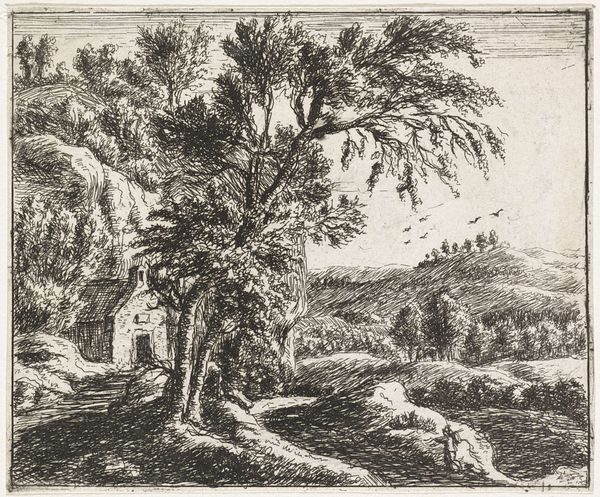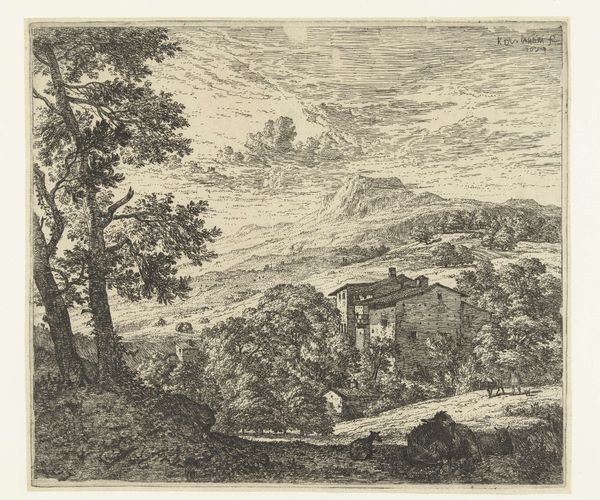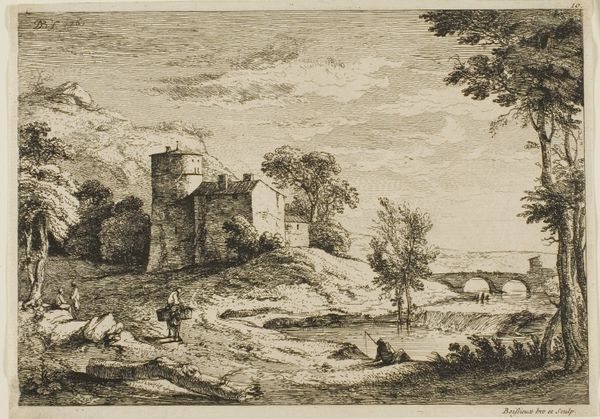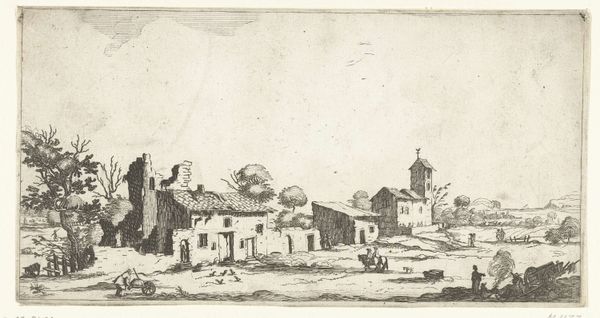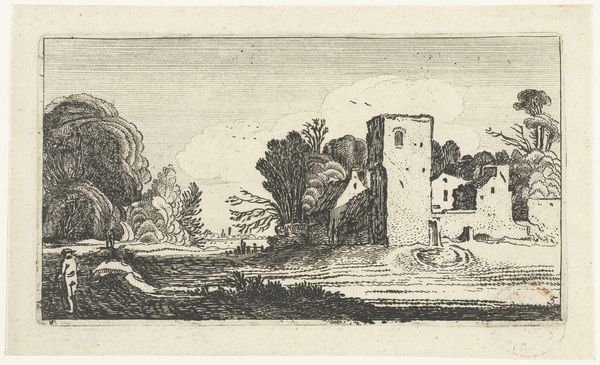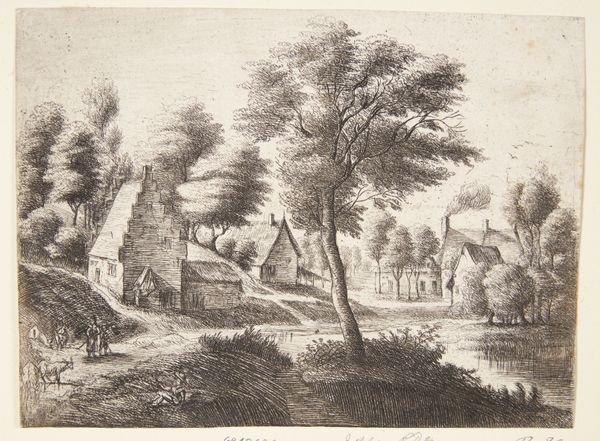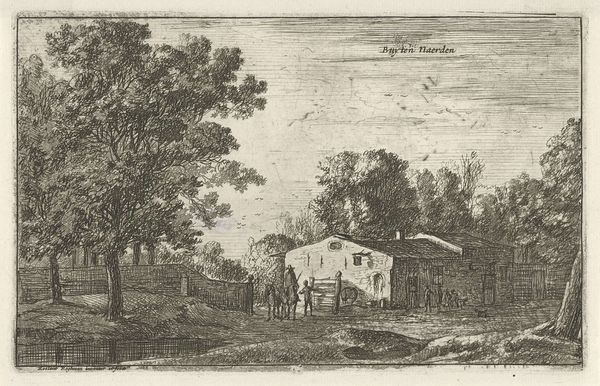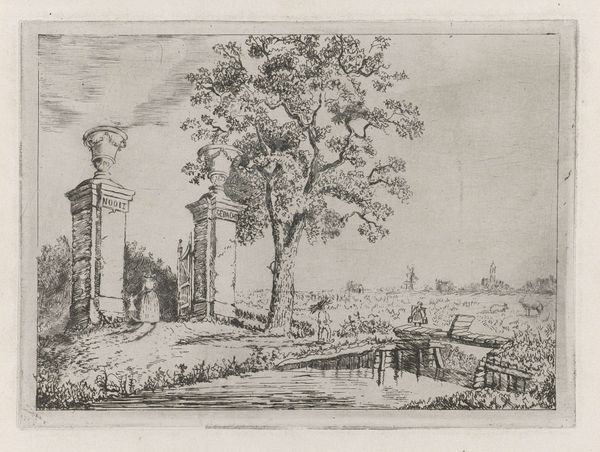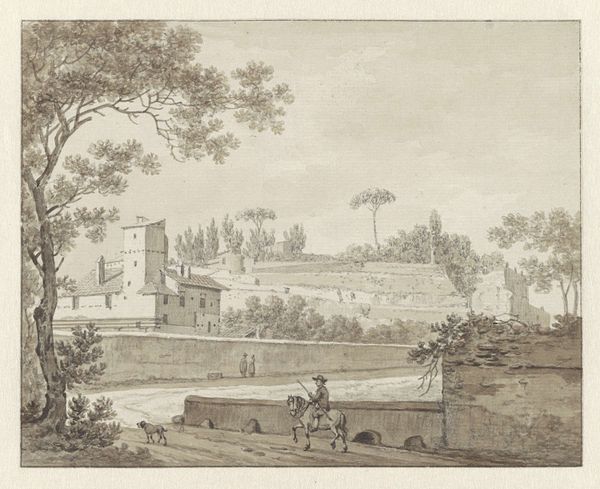
print, etching
#
baroque
# print
#
etching
#
landscape
#
perspective
#
form
#
line
#
cityscape
#
history-painting
#
realism
Dimensions: height 177 mm, width 282 mm
Copyright: Rijks Museum: Open Domain
Herman van Swanevelt created this landscape scene using etching, a printmaking technique that relies on acid to create lines on a metal plate. The plate is covered with a waxy, protective layer, and the artist scratches away areas to expose the metal. When the plate is dipped in acid, the exposed lines are eaten away, allowing them to hold ink. Notice the fineness of the lines in the sky and foliage, versus the denser cross-hatching used to define the rocky foreground. This contrast not only creates a sense of depth, but speaks to the labor involved in the printmaking process. Each line had to be drawn, etched, and printed, making prints valuable yet relatively accessible artworks. The scene itself, with its classical ruins and figures, evokes a sense of history and human drama, a reminder of the labor and lives that have shaped the landscape. By understanding the materials and making of this print, we gain a deeper appreciation for its cultural and social significance, moving beyond the traditional boundaries of art history.
Comments
No comments
Be the first to comment and join the conversation on the ultimate creative platform.
